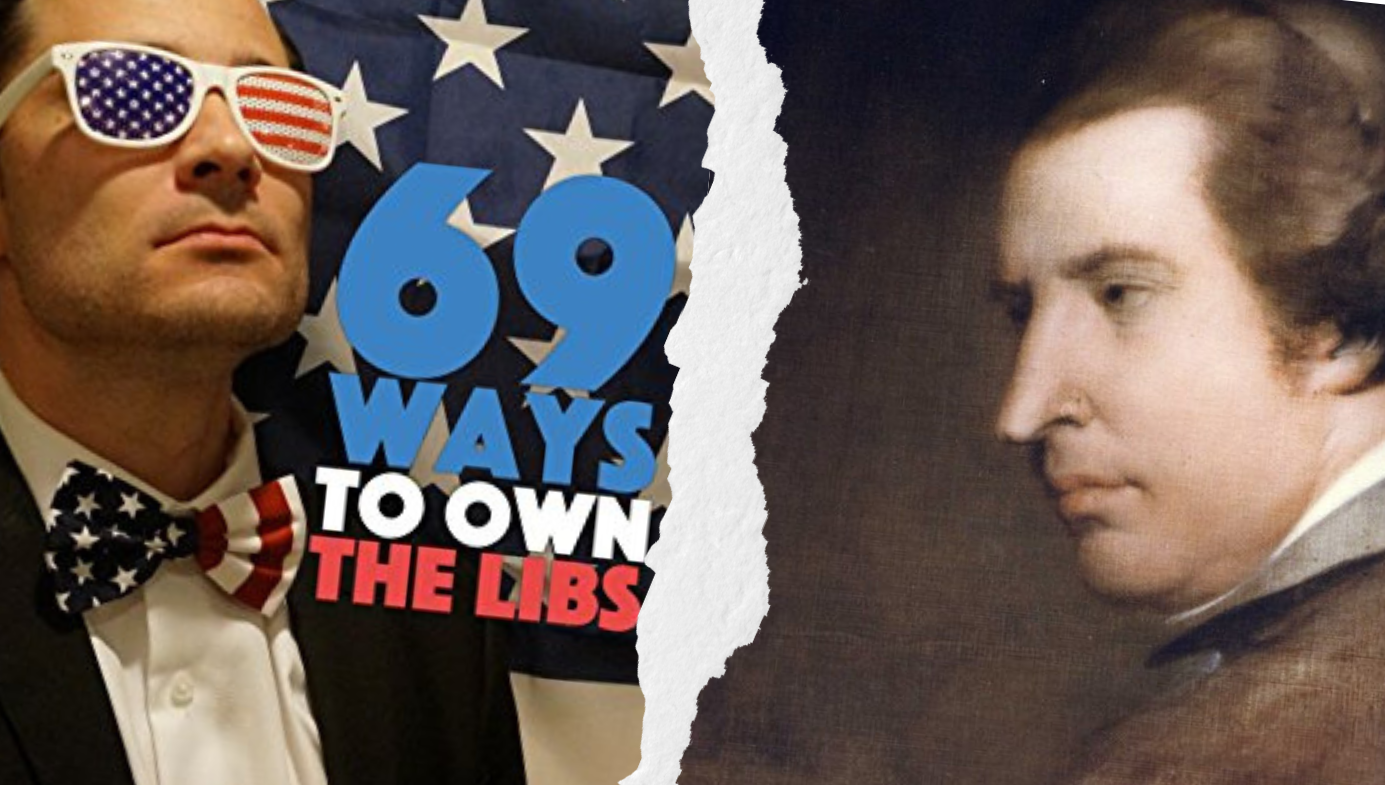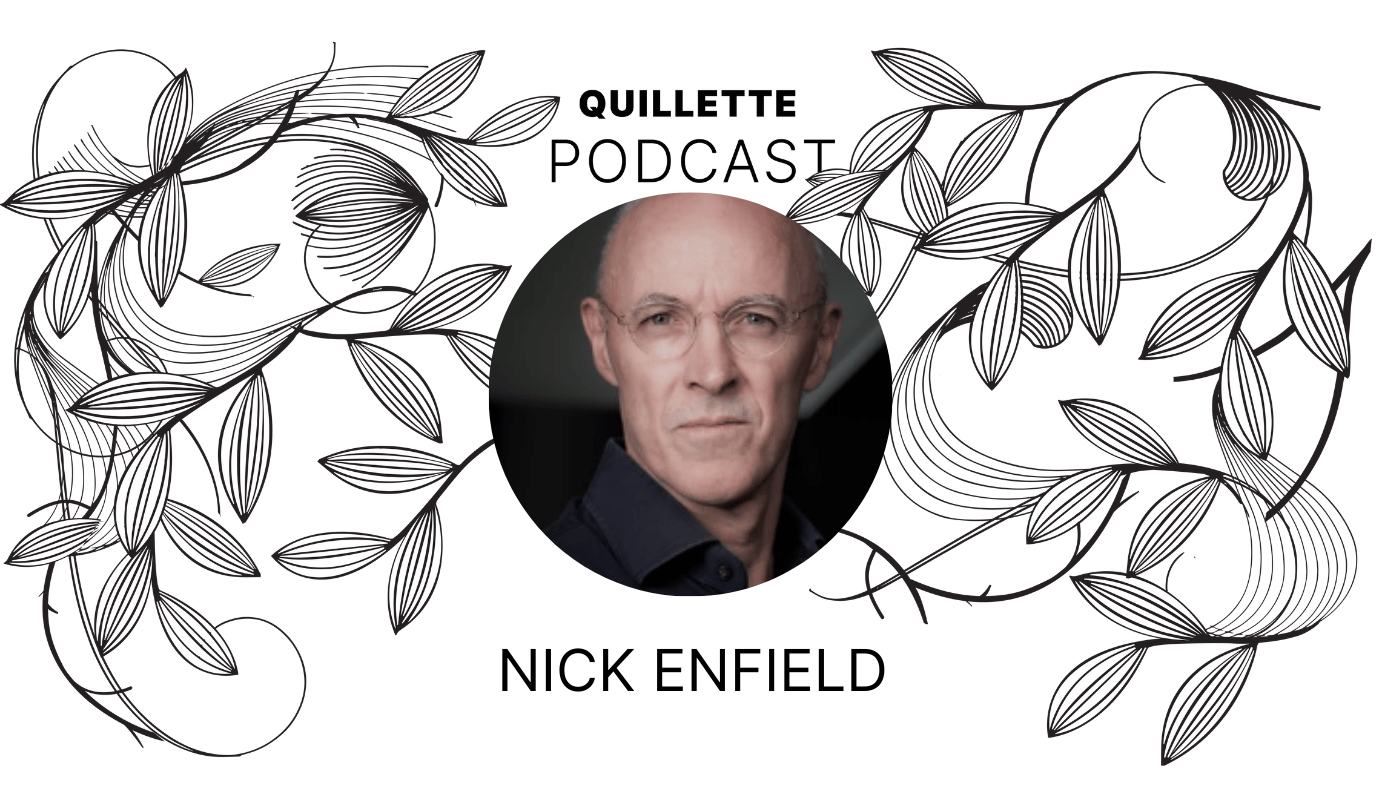Conservatism in an Era Of Populist Revolt
Right-wing radicals are being punished by voters because they have discarded the foundational principles of conservative philosophy.

Between the idea
Between the motion
And the act
Falls the Shadow.
~T.S. Eliot
Conservatism is a sophisticated sociopolitical ideology that attempts to guide a limited but imaginative animal, Homo sapiens, through a dangerous world. It does so by promoting stable, hierarchical societies that protect individual liberty and preserve social cohesion. Although rooted in primitive needs and desires, self-conscious conservatism arrived only after the French Revolution. It is a post-Enlightenment and often pro-Enlightenment ideology, but it is skeptical of human reason and unlimited self-improvement. Its wistfulness, anti-utopianism, and emphasis on human frailty can seem gloomy, but it need not be obsessed with an irrecoverable past nor fixated on the depravity of humanity.
One would not know this from watching Fox News, listening to conservative talk radio, or watching a debate with many of the most popular politicians of the Republican Party. The Right in the United States has embraced a puckish anti-establishmentarianism that often delights more in the humiliation of its enemies than in the persuasion of its critics. Donald Trump—a boorish but charismatic businessman unlikely to have read a single page of Burke, Kirk, or Buckley—is the most obvious manifestation of this resentful anger, but he is not an anomaly. Even on college campuses, which should be full of ideas and arguments, conservatives have begun to embrace anti-intellectualism and reactive provocation for their own sake.
This anti-establishment hostility is understandable but regrettable. The establishment in the United States—especially the media and academia—is undeniably hostile to conservatism, and in many ways, hostile to the values of a plurality of Americans. Mainstream news outlets promote perplexing and divisive ideas about gender, race, and identity, and denigrate the United States. Before the populist revolt, even many establishment Republicans seemed to be haughty, out-of-touch, and indifferent to the plight of the common people—more interested in tax cuts and business growth than in preserving traditional values.
Raising a middle finger in response was cathartic and exhilarating. The election of Trump was a defiant expletive, and many conservative voters celebrated as he took a sledgehammer to the pieties of an establishment that they felt treated them with contempt. An indiscriminate iconoclast, Trump not only attacked the elite media, but also the elites in his own party, and his base loved him for it. Other candidates and pundits noticed and mimicked his abrasive style, although they usually lacked his political charisma. The populist revolt and its transgressive aesthetic spread rapidly.
However, the ephemeral pleasure offered by defiance is hardly a substitute for winning elections and shaping institutions. In the 2022 midterms, Republicans badly underperformed (perhaps not their polls, but certainly their hubristic expectations), a disaster punctuated by the loss of a runoff in Georgia for the second time in as many elections. These dismal results were not haphazard; the kind of pugnacious and conspiratorial candidates preferred by Donald Trump underperformed by roughly five percent compared to normal Republican candidates. The dedicated base may enjoy the pageantry of populism but moderate voters were repelled by it.
Conservatives must either embrace existing institutions or build new ones, and work diligently to persuade moderates, independents, and especially the young. To do this, they need to think more clearly about their own philosophy and how it relates to their policy agenda. Sparkling syllogisms and clever dialectics are not the most effective or important tools in a political campaign: logical rigor is less important than eloquence and metaphysics are no substitute for charisma. Candidate quality is crucial. But understanding conservatism’s intellectual foundation—its animating principles and ideas—is also helpful for inspiring a popular policy agenda, persuading young and curious thinkers, and rebutting the common misconceptions and caricatures that are promulgated by mainstream outlets and university professors.
The chief purpose of conservatism is to preserve the social institutions, practices, and norms that contribute to the good life, to reinvigorate those that have decayed, and to recover those that have been lost. Conservatism is not only about conserving since the prevailing social order may not necessarily contribute to human flourishing. A conservative in the ante-bellum United States could have (and should have) opposed slavery because it was an iniquitous institution that caused great misery. Similarly, a contemporary conservative can (and should) oppose the radical progressivism that has become a part of the status quo.
So, despite accusations to the contrary, conservatism is not a futile fight against change. Institutions that deserve to die should die. Few conservatives pine for the halcyon days when kings lined bridges with the impaled heads of their enemies. However, conservatism is a fight against degeneration and collapse. Like a gothic cathedral, complex, ordered, and largely peaceful societies are not natural or inevitable; they are anomalies, the maintenance of which requires painstaking work and sacrifice. And because they are constantly besieged by human passions and fractiousness, they require careful stewardship and ongoing renovation.
The major disagreement between conservatism and its rivals (such as libertarianism and progressivism) is that conservatism favors order and worries about chaos. It prioritizes the preservation of the existing good over the creation of the imagined better because it subscribes to a variant of the Anna Karenina principle: however many ways there are of improving a society, there are infinitely more of making it worse.
Conservatism can be said to rest on three philosophical premises or assumptions.
1. Human nature is limited, but human imagination is not
In his book, A Conflict of Visions, Thomas Sowell divides the myriad views about human nature into two broad tendencies—constrained and unconstrained. The constrained vision sees humans as relatively fixed by their peculiar biological inheritance and unable to transcend their natural limitations. The unconstrained vision sees humans as more malleable and therefore capable of vast improvement and perhaps even perfection.
Conservatism endorses the constrained vision of human nature. It accepts a secular version of the theological claim that humans suffer from original sin. Not only are humans constrained, but we are also frail and fallible creatures who can imagine moral perfection but never attain it. This is the key to the human condition. If humans were constrained but also incapable of imagining a better world, we would be unaware of our own shortcomings, and as innocent as the lion that devours an antelope. The human dilemma is not just that we are limited creatures, but also that we have expansive moral imaginations. We can picture paradise but we are condemned to live in purgatory.
This perpetual collision between imagination and reality is painful and dangerous, but it can be salutary. It is painful because the failure to live up to our own moral ideals condemns us to dissatisfaction. It is dangerous because we can conjure unattainable fantasies of peaceful and abundant societies, the pursuit of which is then used to justify the imposition of great suffering. And it can be salutary because we can recognize our own failures and strive to mitigate them and channel them into productive outlets. The lion may avoid the bite of human conscience, but it cannot improve its behavior nor create a social system that incentivizes its best impulses while suppressing its worst.
The conservative’s secular conception of original sin leads to a kind of hopeful skepticism. Conservatism is skeptical of radical or utopian ideas that require the dramatic transformation of society because those ideas are not only usually wrong, but also corrosive of the current social order. And even when they are correct, they are best realized through incremental change, not revolution. But conservatism is hopeful that with prudent criticism, humans can continue to improve the norms and institutions that have enhanced their lives. Perpetual improvement is impossible, and not all change is for the better. But it is difficult to argue that a medieval peasant lived a more satisfying and enjoyable life than an average farmer in the United States today.
Conservatives are not afraid to challenge the status quo when it has failed. And they can even embrace the ideas of serious, respectful reformers on the Left without repudiating their own philosophy. The human condition is tragic, but civilizations are not doomed to stasis or decline. And the past is not always more glorious than the present.
2. Institutions and norms contain wisdom of which humans are often ignorant
Conservativism contends that the “purpose” of norms and institutions—like the purpose of a part in a car or an organ in a body—is often difficult to discern. It is skeptical of rationalism, or the view that norms and institutions are ultimately transparent to reason and can be fully understood, at least by properly trained experts. Norms and institutions do not spring into the world fully formed like Athena from Zeus’s head, and they do not have straightforward and predictable consequences. Rather, they develop piecemeal as they respond and adjust to the vicissitudes of history, and they have myriad and often unforeseeable effects.
Their structure, like that of a bird’s beak or a bat’s wing, possesses hidden knowledge, not endowed by God or by some omniscient philosopher king, but by the selective forces of culture. In other words, norms and institutions, like organisms, evolve. And evolution does not require foreknowledge or understanding.
This leads to a skeptical variant of Chesterton’s fence, or the principle that we should first understand the purpose of something before seeking to remove or replace it. Ironically, we might not ever fully know the purpose of something until we remove it and have to deal with the consequences. But it may then be difficult or even impossible to return to the status quo ante. Experimentation where necessary should therefore be pursued with care.
Progressives and radicals, on the other hand, inveigh against institutions they perceive to be unjust and social norms they perceive to be coercive. They subscribe to what one might call Chomsky’s burden, after the influential linguist and political thinker, Noam Chomsky—the notion that power is presumptively illegitimate. From this perspective, norms and institutions that cannot rationally defend their existence should be dismantled (since norms and institutions require power to be effective).
To the conservative, Chomsky’s burden overestimates human reason and misunderstands the nature and development of social institutions. They are not like philosophical arguments, they are like organisms in a complex ecology. And just as it is virtually impossible to know what will happen when one introduces a new species into an ecosystem, it is virtually impossible to know what will happen when one changes a norm or overthrows an institution. The appropriate heuristic is therefore one of deference, especially if the social institution in question has a long record of success. Although this may be mocked as a kind of mindless preference for the status quo, it is a straightforward consequence of taking skepticism and empiricism seriously.
It is worth repeating, however, that conservatism’s default position of deference is not limitless. As the effects of a norm or institution become more obviously and measurably harmful, the case for deferring to it weakens. In extreme cases, conservatives will even accept the need for war or rebellion, as they did during the American Civil War, since it may be the only way to end tyranny or injustice.
3. Order, hierarchy, and community are important
Disorder is ruinous to human flourishing. Periods of war and revolution are replete with suffering and immiseration. The creation and the preservation of order are therefore paramount. This may sound like a quaint concern to those born into a stable and prosperous society, but the conservative worries that disorder presents a perpetual threat to civilization. The riots that followed the death of George Floyd and the 2020 election provided reminders that, even in affluent and ordered societies, violent disorder can wreak havoc.
In large post-industrial societies, order is maintained by an advanced criminal justice system and by norms and expectations, which rely upon deference and a soft hierarchy of status, wisdom, and expertise. Without deference and hierarchy, society would become an unruly anarchy of individuals. Cooperation would be extremely limited, and collective decision-making would be virtually impossible.
Although modern conservatism endorses hierarchy, it does not embrace aristocracy or any other static form of social stratification. People should rise or fall according to their own traits and talents, and deference should be based on merit, not arbitrary coercion. This puts conservatism at odds with the radical egalitarianism promoted on the progressive Left. Economic inequality, like many other forms of inequality, is an ineradicable feature of any functional and relatively free society. Encouraging bitterness by fixating on economic disparities is often destabilizing and ruinous to social order, especially if such encouragements are coupled with the promise of some illusory paradise of equality.
The best way to promote stability and to ameliorate the envy that inequality can foster is to promote superordinate group identity and goals. That is why conservatism emphasizes the value of community and nation and disdains mockery of patriotism. The only way to hold large groups of individuals together without intolerable authoritarianism or stultifying conformism is to establish a meaningful common identity. Ridiculing patriotism corrodes the common identity of the nation, which both increases polarization and the importance of narrower identities, such as race or sexual orientation.
Humans flourish when they are free but also bound by love, duty, and admiration to their families, their communities, and their nations. When those binds break, freedom temporarily expands, but ennui rushes in, sapping humans of purpose and destroying real liberty. Worse, charlatans and demagogues exploit the growing emptiness by promising easy solutions or the excitement of a glorious cause. Radicalism is as often a distraction from boredom as it is a response to real injustice.
These three philosophical assumptions might lead to the support of many different, perhaps even contradictory policies. Nevertheless, they do recommend some positions more than others. And they allow conservatives to make careful, rational, and persuasive arguments for policies and ideas which mainstream outlets too often characterize as driven by fear or bigotry. Consider the following examples:
- Conservatives are often suspicious of generous immigration polices not because they are racial chauvinists, but because they worry that diversity is a difficult challenge that potentially undermines group cohesion and trust. Illegal immigration is especially bad because it also violates the rule of law.
- Conservatives are supportive of policing and the criminal justice system not because they are especially punitive, but because they worry that crime is a corrosive force that damages communities and promotes a climate of fear that unscrupulous politicians can manipulate.
- Conservatives, even those who are not believers, extol religion and promote religious belief not because they are benighted or anti-scientific, but because they believe that religion is a powerful force for meaning and community cohesion which has been shaped and refined by the exigencies of civilization.
The list could continue. The point is not to defend every conservative belief, but to note that those beliefs are the result of careful consideration. Of course, they build from intuition and temperament, as do the beliefs of any ideology. But they are not simply the cognitive spasms of a certain kind of brain. They resulted from debate and deliberation; they cohere with a set of plausible assumptions about the social world; and they appeal to many intelligent and sensible thinkers. This does not necessarily make them correct, of course. But it does make them worthy of serious consideration.
Unfortunately, many conservatives today no longer embrace them or try to persuade others of their merits. Instead, they have resorted to a kind of adolescent provocation, unleashing their enmity at a hostile status quo through the embrace of nihilism. But this is doubly mistaken. First, because it simply reenforces the progressive suspicion that conservatives, especially social conservatives, are bereft of ideas and arguments and are motivated by fear and hatred. And second, because it alienates centrists and undecideds. Many decent Americans would prefer to vote for a Democratic Party that they dislike than for a Republican Party full of meme-making trolls.
The point of conservatism is to encourage humans to recognize our limits, to discipline our demons, to reject romanticism, to eschew utopianism, and to accept that the real will never be the ideal. For too many conservatives, this has been lost in the fog of an unremitting war against progressivism. Conservatism may be a sophisticated sociopolitical ideology, but if people are too busy drinking liberal tears to make that case, a new generation of thinkers will learn a rather different lesson. They will then act and vote accordingly.











